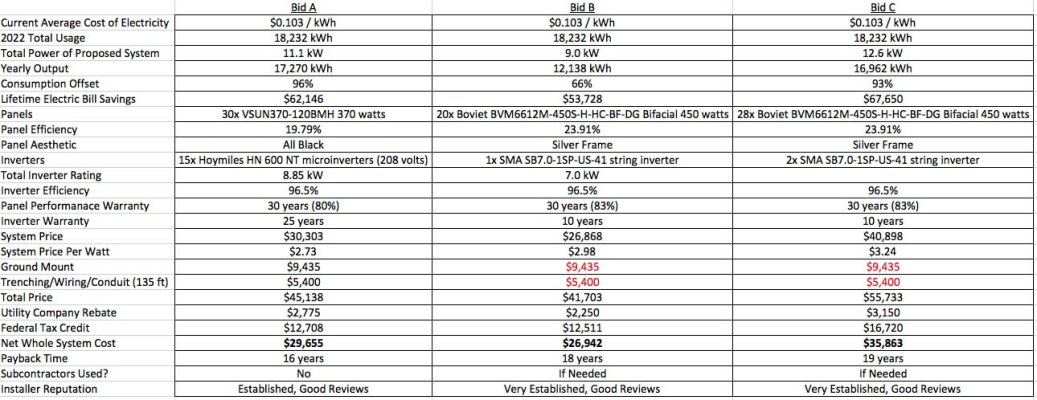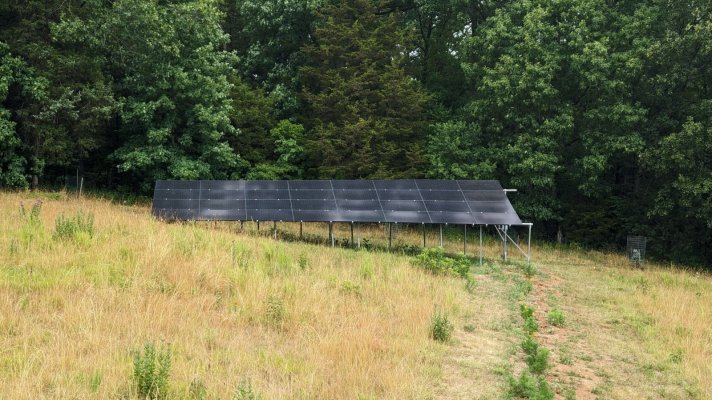Here are three quotes I got for solar.
Your grid power costs half, system costs 4 times more and payback is 3 times longer than equivalent roof top systems in Australia.
Payback is time to recover capital expenditure.
Payoff is time to recover capital expenditure and earnings from an alternative investment.
Nope, it'll be mounted on a rack system in my pasture. About $15,000 of the total cost comes from the mount and $40/foot for trenching back to my house.
Rooftop installation cost in Australia is about 50% of panel + inverter cost. Total installed cost typically $A 1 / W = $USA 0.7 / W. Your quotes ~$USA 3 / W.
If return on investment is the dominant criteria I suggest looking deeper.
Payoff time; 7% alternative investment returns, electricity savings 15% of initial capital cost of 100%, system value 0% at end:
= NPER(7%, 15%, -100%, 0%)
= 9.3 years.
15% / y of $30,000 = $4,500 / y electricity must be saved / sold.
$4,500 / $0.1 = 45,000 kWh / y.
2022 usage = 18,000 kWh / y.
Would need to eliminate 18,000 kWh / y power imported from grid and sell 27,000 kWh @ $0.1 / kWh into grid for total production of 45,000 kWh / y but system rated to produce 15,000 kWh / y.


